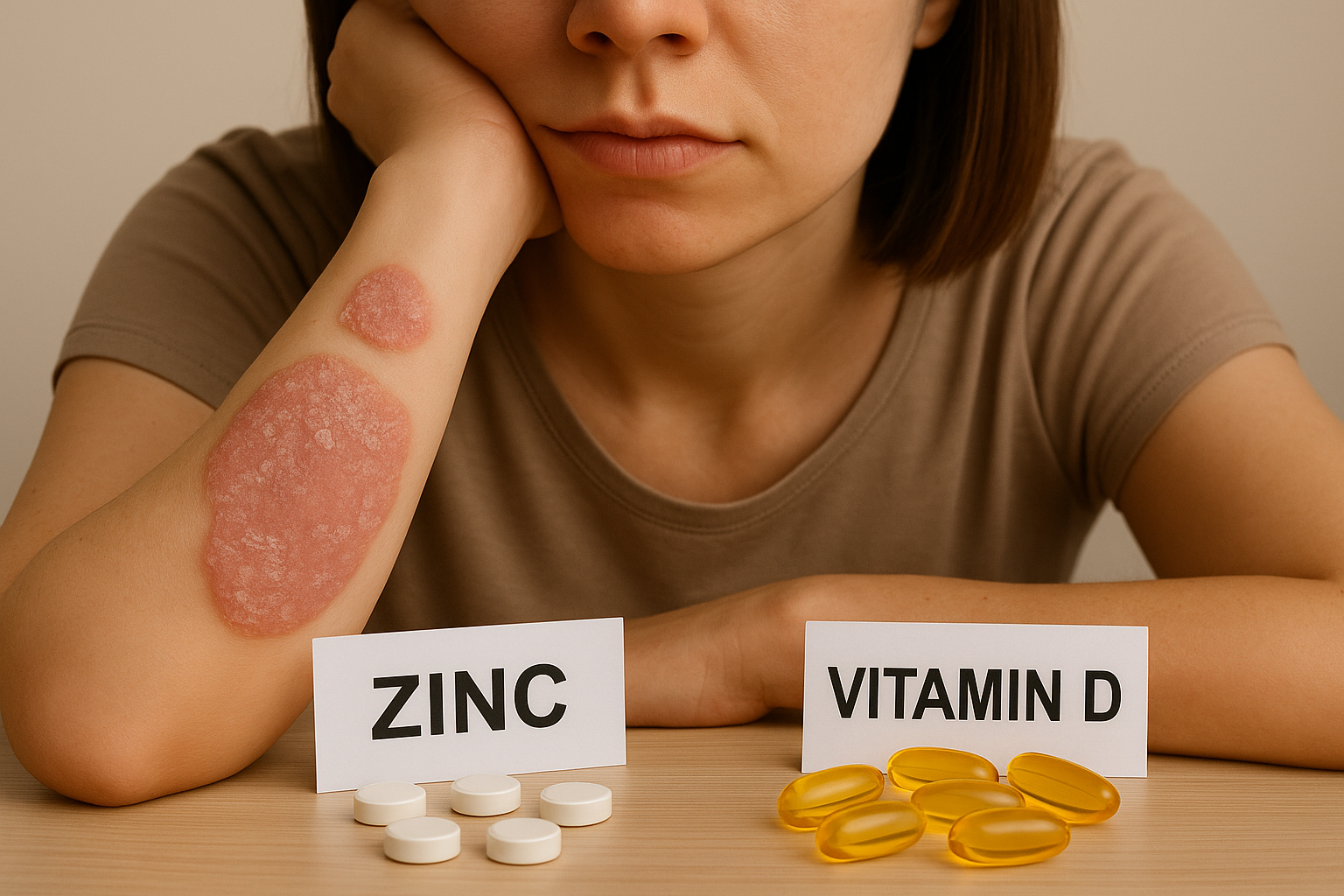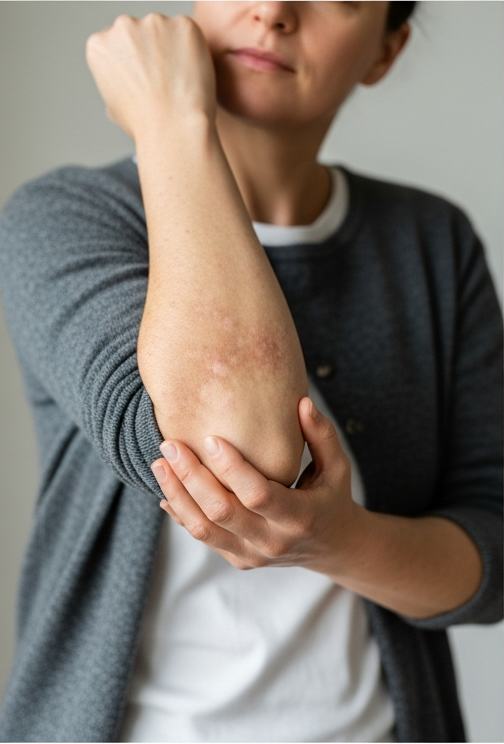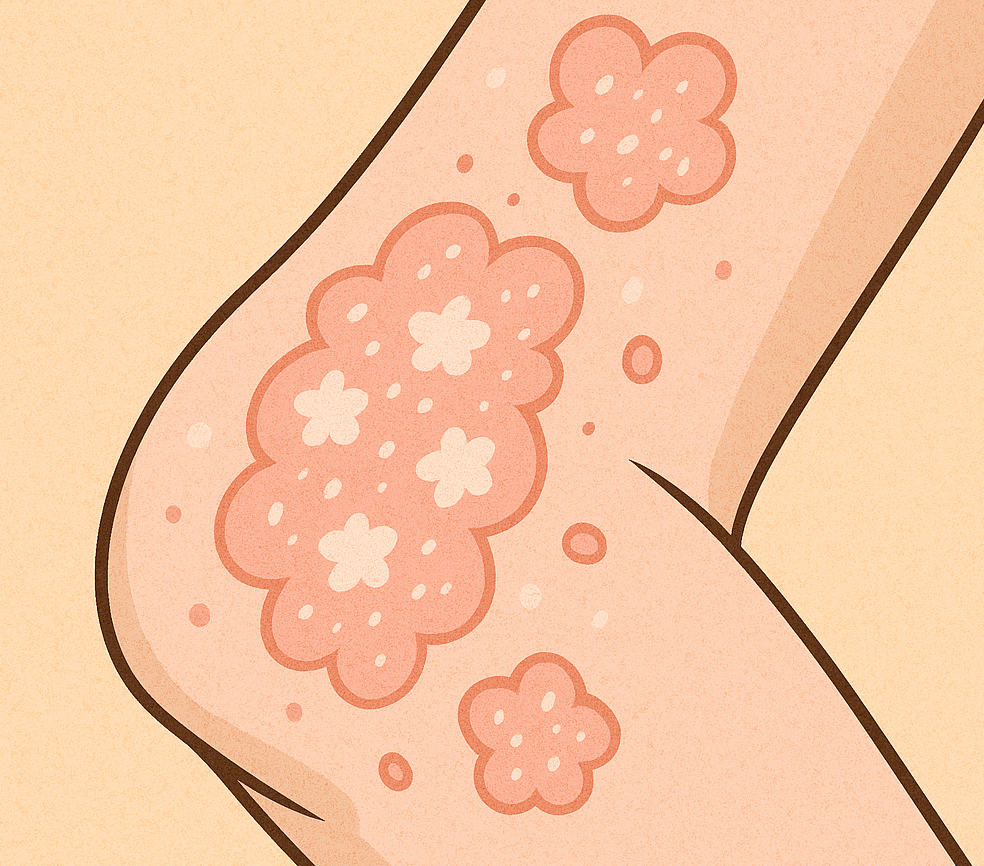Psoriasis Diet: Best Foods, What to Avoid, and Meal Tips


have already shared their stories
Can Diet Help Psoriasis?
If you live with psoriasis, you’ve probably wondered whether changing your diet could help your skin. While there’s no cure for psoriasis, research suggests that certain foods may help reduce inflammation, support treatment, and even ease flares.
The key is understanding how diet interacts with the immune system, inflammation, and gut health—all of which play a role in psoriasis.
How Diet and Psoriasis Are Connected
Psoriasis is an inflammatory, immune-mediated skin condition. What you eat may influence symptoms in three main ways:
- Inflammation: Diets high in processed foods, sugar, and unhealthy fats may fuel inflammation. Anti-inflammatory foods, on the other hand, may help calm it.
- Gut health: A healthy gut microbiome supports immune balance. Imbalances may contribute to psoriasis flares.
- Weight management: Extra weight increases inflammation and can make psoriasis treatments less effective.
Best Diets and Foods for Psoriasis
The Mediterranean Diet
The Mediterranean diet is one of the most recommended patterns for psoriasis because it lowers inflammation. It focuses on:
- Fresh fruits and vegetables
- Whole grains and legumes
- Olive oil as the main fat
- Fish and seafood several times a week
- Nuts and seeds for healthy fats
A study in JAMA Dermatology (2018) showed that people with psoriasis who followed this diet reported milder symptoms.
Anti-Inflammatory Foods for Psoriasis
Adding these foods may help:
- Fatty fish (salmon, mackerel, sardines) → omega-3 fatty acids fight inflammation
- Nuts and seeds (walnuts, flax, chia) → provide healthy fats and antioxidants
- Leafy greens (spinach, kale, arugula) → rich in vitamins and fiber
- Berries (blueberries, strawberries) → high in anti-inflammatory polyphenols
Weight Management Benefits
Studies show that people with psoriasis who lose weight may notice symptom improvements and better responses to medication.
Foods to Avoid with Psoriasis
Not all triggers are universal, but some foods are often linked to worsening symptoms:
- Red and processed meats (bacon, sausages, beef) → high in saturated fat
- Alcohol → may trigger flares and interfere with treatments
- Refined sugar and processed foods → spike blood sugar and fuel inflammation
- High-fat dairy → can worsen inflammation in some people
- Gluten → not harmful for everyone, but people with gluten sensitivity or celiac disease often improve when avoiding it
Tip: Try keeping a food diary to track possible personal triggers.
Supplements and Nutrients Worth Considering
Some nutrients may support psoriasis management:
- Omega-3 fatty acids → found in fish oil, may help reduce inflammation
- Vitamin D → important for skin health; deficiency is common in psoriasis
- Probiotics → may support gut health and immune balance (evidence is growing)
- Zinc → important for skin repair, though supplementation is usually only needed if levels are low
Be cautious of fad “psoriasis diets” or supplements promising cures—these aren’t backed by strong science.
Practical Psoriasis Diet Tips
Eating for psoriasis doesn’t have to be complicated. Try these simple swaps:
- Choose grilled salmon instead of fried meat
- Use olive oil instead of butter or margarine
- Pick whole grains (oats, quinoa, brown rice) over white bread and pasta
- Add a daily serving of leafy greens or salad
- Snack on nuts and fresh fruit instead of chips or candy
- Replace alcohol with sparkling water + lemon
Bottom Line: The Best Diet for Psoriasis
While diet alone won’t cure psoriasis, research suggests that Mediterranean-style and anti-inflammatory diets may help reduce symptoms and support overall health. Limiting alcohol, processed foods, and excessive sugar can also make a difference.
Because psoriasis is complex, the best approach is individualized. Be sure to work with your dermatologist and a registered dietitian to find a plan that fits your lifestyle and supports your treatment.

have already shared their stories
- Phan C, et al. JAMA Dermatology. 2018. "Association Between Mediterranean Diet and Severity of Psoriasis."
- Barrea L, et al. Nutrients. 2018. "Nutrition and Psoriasis: Is There Any Association Between Severity and Adherence to the Mediterranean Diet?"
- National Psoriasis Foundation: Diet and Nutrition
- Mayo Clinic: Psoriasis diet FAQ







